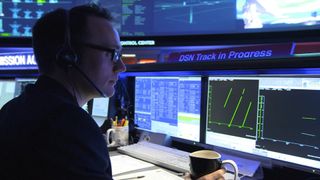Microsoft partners with NASA to take quantum computing into space
Microsoft and NASA making use of Azure's quantum smarts to help coordinate spacecraft

The advances in quantum computing that are happening are, in some ways, similar to the space race: huge investment by giant entities in futuristic technology designed to take humanity to the next level.
Today, NASA and Microsoft are taking that to the next level with a partnership that will hopefully help the US space agency more easily coordinate its spacecraft, a difficult process as any on earth. The ultimate goal? Reducing the time it takes to transmit instructions from hours to just minutes, powered by quantum technology.
"As NASA launches more frequent and complex missions into space, managing communications with the growing number of spacecraft is becoming increasingly challenging," says Microsoft in a blog post. "NASA’s Jet Propulsion Laboratory (JPL) has turned to Azure Quantum to explore ways to communicate more efficiently with spacecraft exploring our solar system and beyond."
Quantum rules the waves
There are even some early signs of success. During testing, Microsoft has recorded schedule runtimes of 16 minutes, far below the two or more hours it has taken NASA previously. With a broader rollout, NASA would be able to create many schedules, letting the organisation become more agile.
Microsoft hasn't released many other details about the partnership but we're sure we'll hear more as it progresses and quantum tech is brought to bear on one of the lesser-known holdups for space travel.
Quantum technology is a departure from the existing binary system, where inputs can be either one or zero, by introducing states between those inputs and allowing them become both at the same time.
The result: computation happens a lot more quickly, as the above example shows, and we're only just at the start of quantum computing research. It's kind of like when PCs had 32KB of RAM compared to running a rig with 256GB, both in terms of the potential from this point forward and a comparison to existing computing oomph.
Are you a pro? Subscribe to our newsletter
Sign up to the TechRadar Pro newsletter to get all the top news, opinion, features and guidance your business needs to succeed!
Microsoft, IBM, Amazon, Microsoft, the US, China, and loads of startups, countries, and huge companies are researching the field at present, seeking to edge in the next wave of computing.
Max Slater-Robins has been writing about technology for nearly a decade at various outlets, covering the rise of the technology giants, trends in enterprise and SaaS companies, and much more besides. Originally from Suffolk, he currently lives in London and likes a good night out and walks in the countryside.
Most Popular

